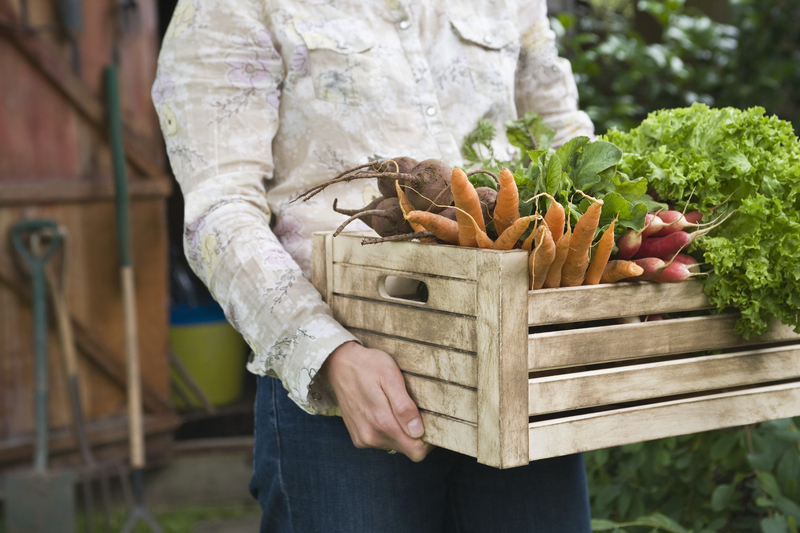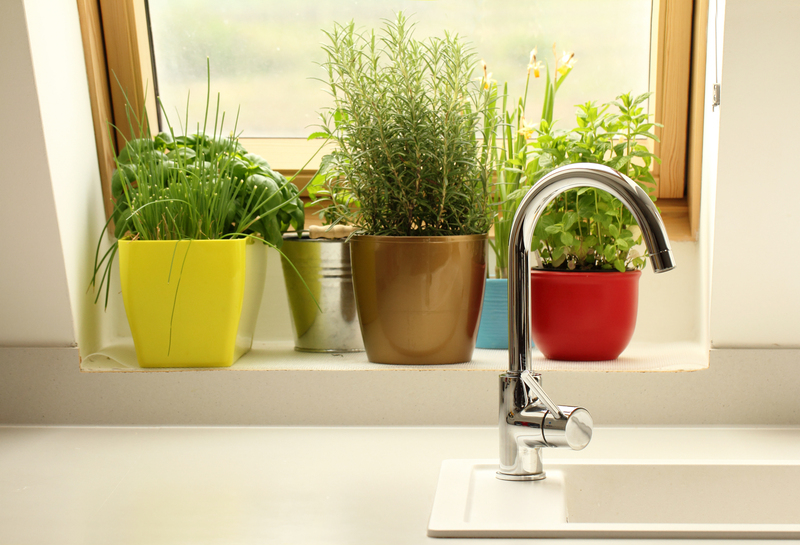Master the art of gardening with our 9 essential beginner tips
Posted on 30/06/2025
Master the Art of Gardening with Our 9 Essential Beginner Tips
Are you eager to transform your outdoor or indoor space into a lush green haven? Whether you have a tiny balcony, a cozy backyard, or simply a few pots by your windowsill, learning how to garden can be incredibly rewarding. Many people think that to achieve a thriving garden, you need a "green thumb." But the truth is, with the right knowledge and approach, anyone can succeed and enjoy the countless benefits of gardening.
In this comprehensive guide, we'll walk you through 9 indispensable beginner gardening tips that will help you master the art of gardening from the ground up. From understanding your garden's unique environment to embracing essential gardening techniques, these tips will set you up for a successful, enjoyable, and sustainable gardening journey.
Why Start Gardening? The Beauty and Benefits Await
Gardening offers more than just beautiful landscapes. It's a hobby that can:
- Reduce stress and boost mental health.
- Promote physical activity and well-being.
- Provide organic, homegrown produce for your table.
- Enhance property value and curb appeal.
- Support local biodiversity by attracting pollinators.
Ready to dig in? Start your gardening adventure with these essential beginner tips!

1. Choose the Right Location for Your Garden
The foundation of successful gardening starts with selecting the best spot. Most plants need at least 6-8 hours of sunlight daily. Observe your space throughout the day and note where sunlight falls. Consider:
- Sun exposure: Is your spot shaded, full sun, or partial sun?
- Protection: Is the location sheltered from strong winds or heavy rainfall?
- Accessibility: Will you be able to easily water, weed, and harvest your plants?
Pro tip: Start small, such as a container garden, if you have limited space or sunlight. This helps prevent overwhelming yourself as you learn the gardening basics.
Indoor Gardening
If you lack outdoor space, don't worry! Many herbs, flowers, and even vegetables thrive indoors with the right lighting. Mastering gardening at home can be as simple as placing plants in bright windowsills or investing in grow lights.
2. Understand Your Soil or Growing Medium
Soil is the backbone of any lush garden. Before planting, get to know your soil:
- Test its texture (sand, silt, clay, loam)
- Check pH levels (most vegetables prefer 6.0-7.0)
- Look for nutrients and organic matter content
You can buy an inexpensive soil test kit or take a sample to your local garden center. If your soil is poor, you can amend it by adding compost, manure, or other natural enrichments. For containers, always use high-quality potting mix designed for the types of plants you wish to grow.
Tip: Add mulch on top of your soil to conserve moisture, suppress weeds, and maintain soil temperature.
3. Select Beginner-Friendly Plants
When starting out, it's best to pick plants that are easy to grow and suited to your region. Some popular beginner-friendly options include:
- Herbs: Basil, mint, parsley, chives
- Vegetables: Lettuce, radishes, tomatoes, beans, zucchini
- Flowers: Marigolds, sunflowers, pansies, zinnias
Read the labels or seed packets for guidance on planting zones, sunlight, and water needs. Starting with easy-to-grow varieties will boost your confidence and increase your chances of success.
4. Master Watering Techniques
Watering may seem straightforward, but there's an art to it. Overwatering or underwatering can harm your plants. Here's how to master this vital gardening skill:
- Water deeply, not just the surface. This encourages strong root growth.
- Water in the morning or evening to reduce evaporation and prevent disease.
- Test the soil moisture with your finger; water only if the soil feels dry an inch below the surface.
For container gardens, ensure your pots have drainage holes to prevent root rot. For outdoor beds, adding mulch can keep soil moist longer.
5. Feed and Fertilize Wisely
Plants, like people, need food to thrive. Feeding your garden ensures strong growth, beautiful blooms, and bountiful harvests. Choose a balanced fertilizer that matches your plant's needs:
- Organic options: Compost, aged manure, fish emulsion
- Synthetic fertilizers: NPK blends (Nitrogen, Phosphorus, Potassium)
Follow package instructions to avoid over-fertilizing, which can damage roots. Incorporate fertilizer into the soil or water as directed. Remember, healthy soil is the key to healthy plants!
6. Stay on Top of Weeding
Weeds compete with your chosen plants for water, light, and nutrients. Make weeding a regular part of your gardening routine by:
- Pulling weeds by hand or using a hoe
- Applying mulch to choke out weed seeds
- Identifying and removing invasive species promptly
Tip: Weeding is easiest after rain when the soil is soft. A little effort each week prevents weeds from overwhelming your garden.
7. Practice Seasonal and Pruning Techniques
Learning to prune and care for your plants seasonally is a vital skill as you master the art of gardening. Proper timing and technique help your plants grow vigorously, promote airflow, and encourage blooms and fruits.
- Remove dead or diseased branches to prevent spread
- Prune flowering plants after blooming to shape them
- Pinch back herbs and annuals to promote bushiness
Research the specific needs of your plants, as different varieties have different pruning requirements.
8. Observe and Learn Continuously
One of the secrets to successful gardening is observation. Regularly walk through your garden, take notes, and ask yourself:
- Are there signs of pests or disease?
- Are some plants struggling or thriving better than others?
- Does your watering schedule need to be adjusted based on weather changes?
Gardening is as much about learning from nature as it is about following rules. Stay curious, experiment with new plants, and document your successes and setbacks.
Expand Your Gardening Knowledge
- Join local gardening clubs or online forums
- Read gardening books and magazines
- Attend workshops or talks at local nurseries or botanical gardens
Continuous learning helps you stay inspired and troubleshoot problems easily.
9. Be Patient and Celebrate Every Achievement
Perhaps the most important tip for mastering the art of gardening is patience. Plants grow at their own pace, and sometimes setbacks are inevitable. Every sprout, bloom, and harvest is a small victory worth celebrating.
- Take photos to document your progress
- Invite friends or family to enjoy your garden's beauty
- Share your bounty with neighbors or local food banks
Gardening is a journey, not a race. Relish every moment, from the smell of fresh soil to the sight of your first blossom. Your garden will teach you resilience, creativity, and gratitude.

Most Common Questions About Starting a Garden
- Q: How much time does a beginner gardener need to invest?
A: You can start with just 20-30 minutes a day for watering, weeding, and observation. - Q: Can I garden year-round?
A: Indoor and container gardening can be done year-round. Outdoors, plant according to your local hardiness zones. - Q: Is it expensive to start gardening?
A: Not at all! Many plants can be started from seed, and compost can be made at home for free.
Conclusion: Cultivate Your Green Thumb with Confidence
Gardening is one of life's simplest and yet most rewarding pleasures. With these 9 essential beginner gardening tips, you're well on your way to creating a thriving, vibrant space. Remember to choose the right plants and location, nurture your soil, manage water and nutrients, stay vigilant for weeds and pests, and, above all, practice patience.
Now is the perfect moment to start your gardening adventure. Don't hesitate to experiment, ask questions, and connect with fellow gardeners. Every seed you plant and care for will teach you something new--about nature, about growth, and about yourself.
Happy Gardening!
Latest Posts
Vertical Gardening: Merging Aesthetics with Ecology
Design Outdoor Spaces that Breathe Calm with Zen Garden Ideas
Transform Your Yard with These 3 Handy Weed Control Suggestions

